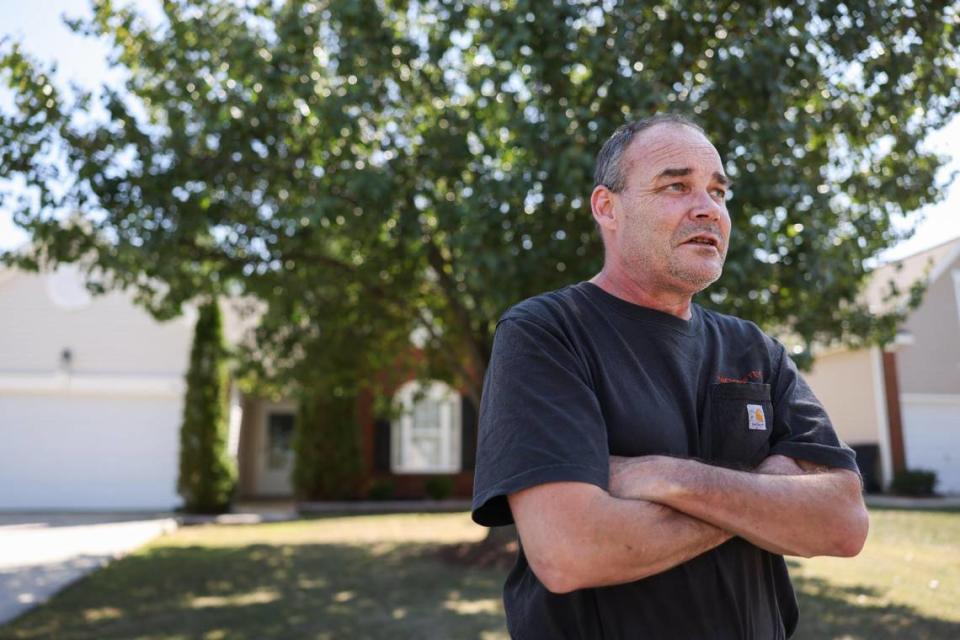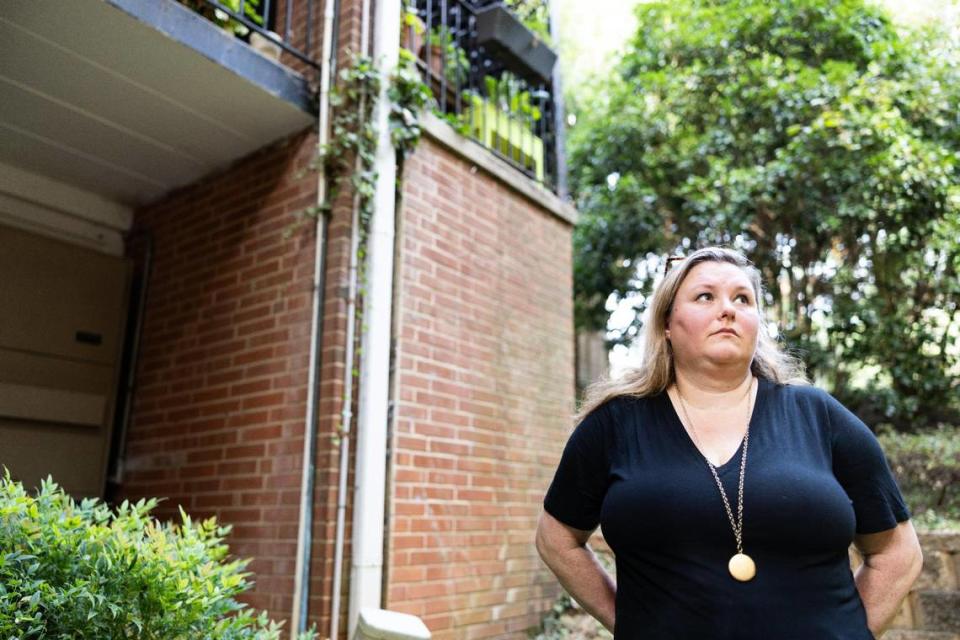NC homeowners tell legislators: We need more protections from unscrupulous HOAs
At the outset of a House committee meeting Thursday, state Rep. Frank Iler held up a two-inch file of complaints from people who’ve had disputes with homeowners associations.
North Carolina homeowners have raised concerns about an array of problems, including high fees, a lack of transparency and arbitrary enforcement of rules, he said.
“We’ve had hundreds of people who say HOAs have been involved in activities that should concern us,” said Iler, a Brunswick County Republican who co-chairs a House committee recently set up to examine the state’s HOA laws.
The nine-member committee, which held its first meeting Thursday morning, has been charged with studying what to do about HOAs that violate the law, and which agencies would be best positioned to help homeowners resolve complaints. Its final report is due by March 1.
Sunila Chilukuri, a legislative liaison for the state Department of Justice, told the House committee that her department would like to see changes in the law: stronger transparency requirements, a better description of the documents that homeowners are entitled to get from their associations, and a minimum dollar limit on the dues owed before an HOA can foreclose.
“We are aware that many North Carolinians are frustrated with their HOA’s,” Chilukuri said.
A Charlotte Observer and News & Observer investigation, published in December, found that hundreds of North Carolina homeowners have lost their homes to HOA foreclosures. HOAs in the state have filed to foreclose in more than 5,500 cases since 2018, the newspapers found. In more than 600 cases, owners lost their property or time-share stakes.
North Carolina makes it easy for HOAs to foreclose on homeowners, the stories showed. In some states, including Georgia, California and Arizona, HOAs are prohibited from foreclosing on homeowners for tiny amounts. But in North Carolina, the law allows HOAs to force the sale of homes for any amount of unpaid dues, no matter how small.
The newspapers’ first-of-its kind analysis of more than 100 HOA foreclosure cases showed that about half of the homeowners had debts of less than $2,000. Some owed less than $500 in dues.
A N.C. Senate bill that would have prohibited HOAs from foreclosing on homeowners went nowhere last year. And a legislative provision that would have prevented HOAs from foreclosing for debts of less than $2,500 was stripped from House Bill 542.
Holding HOAs accountable
Among the eight homeowners who spoke Thursday was Timothy Hinds, who chairs the North Carolina HOA Law Reform Coalition, a group that seeks to protect homeowners from what he called “unscrupulous” HOA boards and property management companies.
No state or federal agencies oversee HOAs in North Carolina. So when associations flout the law, homeowners have little recourse but to “mount prohibitively expensive lawsuits against boards that have access to association money to drag out the cases until the homeowner’s money and time are exhausted,” Hinds told the committee.
Homeowner advocates say the state should provide owners with a low-cost way to resolve disputes with their HOAs.
Hinds, who lives just south of Raleigh, submitted a draft bill on Thursday that would make it easier to hold HOAs accountable if they fail to provide association records to homeowners as the law requires. Under Hinds’ proposal, HOAs that withhold records could be taken to small claims court and forced to pay damages.
“The law currently has no enforcement whatsoever,” Hinds said before Thursday’s meeting. “The law requires them to provide records. But they can refuse to do so with impunity.”
Rep. Ya Liu, a Wake County Democrat who serves as the committee’s vice chair, agreed that homeowners need an easier way to settle disputes with their HOAs. She said her goal is to explore solutions that will “allow homeowners to have a bigger voice.”
About 27% of North Carolina residents now live in HOA communities, and that percentage is expected to grow. Nationally, about 84% of newly built, single-family homes sold in 2022 were part of homeowners associations, according to the U.S. Census Bureau.
“Any new development now is basically required to be in an HOA,” said Rep. Steve Tyson, a Craven County Republican who co-chairs the committee.
Many homeowners are pleased with their HOAs. In a 2022 survey by the HOA industry’s research arm, the Foundation for Community Association Research, 61% of North Carolina homeowners in HOA communities here rated their experiences as good or very good.
But a separate poll, conducted last year by the non-profit policy organization Carolina Forward, found that 64% of North Carolinians support placing limitations on the ability of HOAs to take legal action against property owners or foreclose on property.
Better education needed? Or better laws?
Weldon Jones, a lobbyist for the HOA industry in North Carolina, said he believes better education would help homeowners and HOA board members resolve many disputes.
“Some of the issues that you’ve heard just this morning may in fact be a product of homeowner misunderstanding, board member misunderstanding, and misapplication of some of the covenants and laws related to associations,” said Jones, who lobbies for the North Carolina chapter of the Community Associations Institute, a group that advocates for HOAs.
Others, however, said that what’s needed are stronger laws — and better ways to enforce the laws already in place.
Mike Farmakis, who owns a townhouse in south Charlotte, told the committee that he served on his HOA’s board, but was voted off when he tried to fight what he considered illegal behavior.
He says he believes his HOA broke the law by making it all but impossible for homeowners to file claims on an insurance policy set up to pay for damage to the community’s homes. The HOA uses dues paid by homeowners to buy that insurance, but told owners they needed to buy their own insurance as well, he said.
“Homeowners have lost tens of thousands of dollars through excessive insurance premiums they didn’t need to pay,” he said.
And several amateur radio enthusiasts told the committee that HOA rules prohibiting radio antennas in some communities could make it harder to protect the public in emergencies. Amateur radio can fill gaps that may occur when cell phones or other communication devices fail during disasters, they noted.
“We know that we have tornadoes, such as occurred in Catawba County earlier this week,” said Marvin Hoffman, a ham radio operator from Watauga County. “We have hurricanes. We have flooding situations. So to have a pool of well-trained amateur radio operators who can communicate in emergencies is, I believe, a very important community good.”
The committee will meet again on Jan. 24th.


